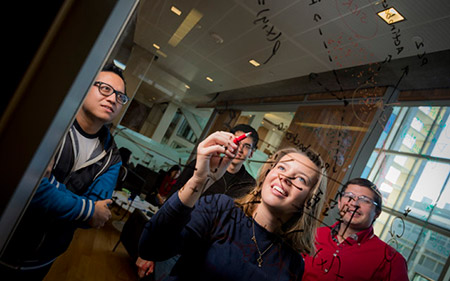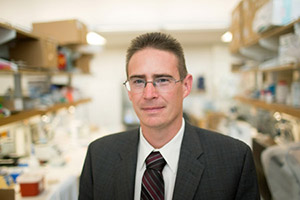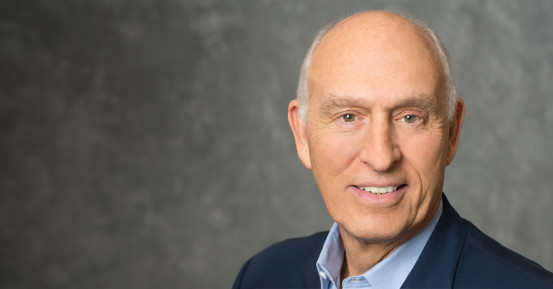UC San Diego to Participate in White House’s National Microbiome Initiative
Effort will advance studies of microbial communities that live within and around us
Published Date
By:
- Heather Buschman, PhD
Share This:
Article Content

Graduate students in the UC San Diego Center for Microbiome Innovation work across disciplines, applying bioinformatics, genomics, chemistry, and molecular biology to disrupt the food, energy and medical industries. Photo by Erik Jepsen
On May 13, the White House Office of Science and Technology Policy (OSTP) announced a new National Microbiome Initiative, a coordinated effort to better understand microbiomes — communities of microorganisms that live on and in people, plants, soil, oceans and the atmosphere — and to develop tools to protect and restore healthy microbiome function. OSTP is launching the initiative with a combined federal agency investment of more than $121 million. The University of California San Diego is a key participant in this effort, investing $12 million in its own microbiome research efforts.
The National Microbiome Initiative puts the spotlight on UC San Diego’s Microbiome and Microbial Sciences Initiative, a concerted research and education effort initiated in October 2015 by Chancellor Pradeep K. Khosla to leverage the university’s strengths in science, medicine, engineering and the humanities. The campus-wide undertaking encompasses a research-focused Center for Microbiome Innovation and a student-centered Microbial Sciences Graduate Research Initiative.

Rob Knight, PhD, leads the Center for Microbiome Innovation at the University of California San Diego.
Three UC San Diego leaders in the microbiome field were invited to attend the May 13 event in Washington, D.C.: Rob Knight, PhD, director of the UC San Diego Center for Microbiome Innovation, professor of pediatrics in the School of Medicine and professor of computer science and engineering in the Jacobs School of Engineering; Pieter Dorrestein, PhD, professor of pharmacy in the Skaggs School of Pharmacy and Pharmaceutical Sciences and professor of pharmacology and pediatrics in the School of Medicine; and Embriette Hyde, PhD, assistant project scientist and project manager of the American Gut Project in the School of Medicine.
The UC San Diego Center for Microbiome Innovation has also received letters of support from a number of companies committed to innovation in this field, including GE, Illumina, Janssen R&D, MO BIO Laboratories, Biota, Sirenas, GALT and ChuckAlek. Participation in the White House’s National Microbiome Initiative and this network will help the Center for Microbiome Innovation target the human microbiome as a means to better manage diseases such as asthma, diabetes, obesity and psychiatric illnesses — and explore the microbiome as a source for new drugs and potential tool for precision medicine. UC San Diego researchers will also collaborate to advance research on soil, aquatic and other environmental microbiomes, and help other scientists use that information to address global challenges to agricultural sustainability, biofuel development and climate change mitigation.
“This ambitious undertaking cannot be accomplished by individual laboratories working in isolation —developing advanced microbiome tools and treatments requires new collaborations among many disciplines. Advancing this relatively new field also depends on attracting and training multidisciplinary networks of scientists and engineers,” Chancellor Khosla said.
“We are very fortunate that the White House and OSTP recognize the importance of microbiome research and supports these needs, and we’re grateful that they recognize the leadership of UC San Diego faculty in this field. We look forward to working with the White House and scientific leaders around the country on this initiative, which we expect will rapidly lead to a variety of new scientific insights, technological advances and economic opportunities that will benefit society, human health and the environment for decades.”
UC San Diego’s leadership in the microbiome field
UC San Diego became a part of the driving force behind the National Microbiome Initiative after Knight helped organize a July 2013 scientific meeting in Washington, D.C., that focused on the future of human microbiome science. That meeting led to invitations to testify before Congress on the importance of the field and to meet with new leaders in the White House’s Office of Science and Technology Policy. In October 2015, Knight and Dorrestein joined a group of top scientists to co-author a Science paper that specifically called for a national initiative to coordinate and accelerate microbiome research across the U.S.
More than 100 UC San Diego Center for Microbiome Innovation faculty — spanning disciplines from engineering to medicine to ecology — are involved in standards efforts, such as Microbiome Quality Control and the Genomic Standards Consortium; large-scale crowdsourced projects, such as the Earth Microbiome Project, American Gut, Global Natural Products; and a collaborative network spanning thousands of investigators at other institutions. Participation in the National Microbiome Initiative will allow these researchers to further these efforts, building new bridges between technology developers and end-users in fields ranging from pharmaceuticals to agriculture.
The UC San Diego Center for Microbiome Innovation is already advancing the three main goals of the White House OSTP National Microbiome Initiative:
Support interdisciplinary microbiome research
“Microbes pervade all kinds of processes — from our bodies to our planet to industrial fermentation and drug synthesis. Working closely with other researchers in the White House’s National Microbiome Initiative will help us unravel the fundamental science so we can understand how microbes do all these things, and help us improve the speed and accuracy in which we can ‘read out’ microbes,” said Knight, who is known for developing a genetic sequencing technique that allows researchers to differentiate unknown microbes in hundreds of samples at once.
In one example project that takes advantage of interdisciplinary expertise provided by the Center for Microbiome Innovation, UC San Diego physicians, microbiome researchers, chemists, genomics experts and bioinformaticians are collaborating to build a 3D map of the chemistry associated with cystic fibrosis and how it shapes the lung microbiome. Their goal is to develop more effective, highly personalized treatments for potentially fatal lung infections that frequently affect people with this disease.
In another multidisciplinary project, UC San Diego researchers are sequencing the gut microbiomes of people with inflammatory bowel diseases (IBD), such as Crohn’s disease, and comparing them to healthy gut microbiomes. The team aims to use this information to subtype Crohn’s disease patients into distinct populations, going beyond classifications based on disease site such as ileal and colonic Crohn’s. Here, the goal is to instead identify microbiomarkers associated with response to different treatments. This approach may allow for more specific diagnoses, prognoses, and perhaps more personalized treatments for IBD. This project brings together UC San Diego clinical gastroenterologists and genetic sequencing experts, as well as computer scientists who are developing the high-performance computing, metagenomic assembly and data visualization infrastructure needed to read out microbiomes and analyze the results.
Develop platform technologies — with academic-industry partnerships
The UC San Diego Center for Microbiome Innovation serves as a platform for industry-university collaborations on the most pressing microbiome challenges.
“I am extremely excited about the many ways that leading-edge microbiome science can be translated to the real world,” said Knight. “Health, animal care, agriculture, personal care products, industrial processes and environmental remediation are just a few of the applications that are ripe for disruption. Improving microbiome technologies is another area where academic-industry partnerships will yield extraordinary advances.”
Through their microbiome center, Dorrestein and Knight are leading a UC San Diego-wide effort to provide government agencies, health care providers, industry partners and others with a rapid response system for microbiome sample readout and analysis that streamlines the process into a matter of days or even hours — a more clinically useful timeframe than the weeks or months it can typically take to obtain this type of data.
“UC San Diego is fast becoming the go-to place to read out microbes — mapping which species live where and in what quantities — and understand what they are doing,” said Dorrestein, who is a leader in metabolomics and data visualization, two technologies that are being increasingly applied to study the chemical environments surrounding microbiomes and to enable rapid interpretation of the results.
Expand the microbiome workforce
Developing a disruptive microbiome workforce is another key UC San Diego effort. In the second branch of the UC San Diego Microbiome and Microbial Sciences Initiative, Kit Pogliano, PhD, professor in the Division of Biological Sciences, directs a student-centered Microbial Sciences Graduate Research Initiative. The graduate program is campus-wide, meaning students can work with any affiliated faculty member in any department.
“We aim to train the next generation of cross-disciplinary researchers with strong quantitative skills that can be applied to microbiome studies, and encourage innovative ideas that will disrupt almost every industry, most notably food, energy and medicine,” Pogliano said.
Share This:
You May Also Like
Stay in the Know
Keep up with all the latest from UC San Diego. Subscribe to the newsletter today.



